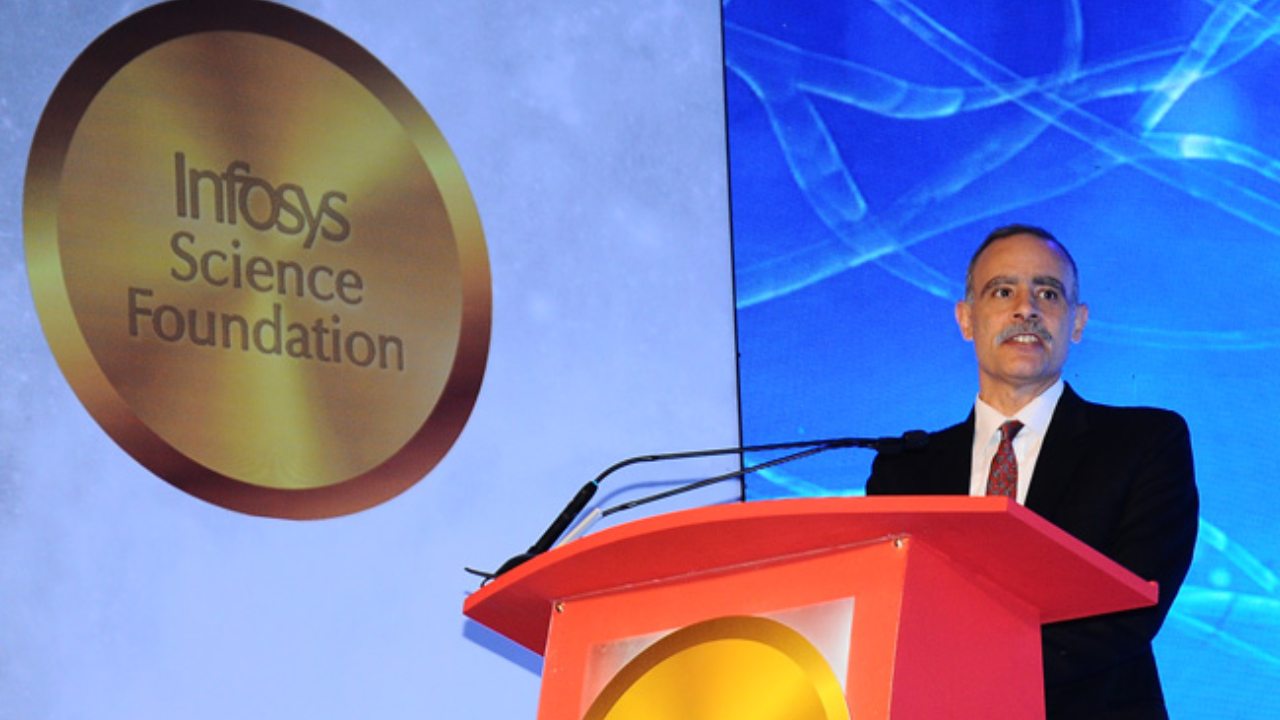Two professors from Indian Institute of Science (IISc) and one from the Tata Institute of Fundamental Sciences (TIFR) are among the six winners of the prestigious Infosys Prize 2018. The annual prize celebrates the success of researchers with their achievements in six science disciplines: Engineering and Computer Sciences, Humanities, Life Sciences, Mathematical Sciences, Physical Sciences and Social Sciences. Professor Navakanta Bhat and Professor SK Satheesh from the IISc and Professor Roop Mallik from TIFR took home the prestigious Infosys Prize for Engineering & Computer Science, Physical Sciences and Life Sciences, respectively. Here’s a look at the research that won each of them a gold medal, a citation and a tax-free prize of Rs 73 lakh each. Tiny sensors with massive potential Professor Navakanta Bhat, chairperson of the Centre for Nano Science and Engineering at IISc was recognised by the Foundation for his work in designing biosensors that push the performance of existing ones, and are of great value to research in nanoscale systems. The gas sensors Bhat has developed are ultra-precise and work at levels of accuracies demanded by modern space and environmental research and monitoring. [caption id=“attachment_5547381” align=“alignnone” width=“1280”] Professor Bhat has designed sensors that are particularly useful to India’s growing space, atomic energy and security industries. Image courtesy: IISc[/caption] “(His work is) especially useful for India’s growing space, atomic energy and security programs,” the Foundation said in
a statement. Molecular motors that run living cells Professor Roop Mallik, from TIFR’s Department of Biological Sciences was recognised for his pioneering work in motor proteins inside living cells. These motors are complex molecules that keep everyday functions of living cells. Mallik has spotted and measured the energy needed by these motors to move large particles into cells. His research has also shown the role these proteins play in essential body functions like fighting an infection or moving fat molecules in and out of the liver. [caption id=“attachment_5547461” align=“alignnone” width=“1280”]
Professor Mallik delves into lipid rafts, spherical cows and motor proteins during a guest lecture at TIFR Hyderabad. Image courtesy: TIFR Hyderabad[/caption] “Along with medication, understanding the metabolic processes at the cellular level is crucial, if we are ever to find a solution. Among other things, Prof Mallik’s research provides insights that will improve therapies for such diseases,” the Foundation
said. While Mallik’s research is largely fundamental, it feeds into potential treatments for diseases that strain Indian healthcare, like obesity and diabetes, where the underlying problem lies in faulty motor proteins. Aerosols effects on climate change Professor SK Satheesh from the Centre for Atmospheric & Oceanic Sciences at Indian Institute of Science is also the Director of the Divecha Centre for Climate Change was awarded the Infosys Prize for his research in climate change. His work on black carbon aerosols — the dark, light-absorbing, microscopic particles in the air and atmosphere — that have a big influence on the stability of atmosphere above the Indian subcontinent, has helped the Indian science community better understand their effects on climate change, rains and human health. [caption id=“attachment_5547961” align=“alignnone” width=“1280”]
Professor Satheesh unveiling the aerosols in climate change. Image courtesy: IISc[/caption] “Professor Satheesh’s work on measuring, quantifying, and analysing the impact of black carbon aerosols is important to not only climate science but also to a society that has to mitigate and cope with climate change, possibly the most important threat to humanity,” the Foundation
said. The other three Infosys Prize winners this year are Jawaharlal Nehru University’s School of Arts & Aesthetics Professor Kavita Singh in Humanities, University of Strasbourg’s Institute for Advanced Study Professor Nalini Anantharaman in Mathematical Sciences and University of Chicago Professor Sendhil Mullainathan in Social Sciences. [caption id=“attachment_5547971” align=“alignnone” width=“1280”]
A roundup of this year’s Infosys Prize winners. Image courtesy: Infosys Foundation[/caption] The winners were selected by a six-member jury of renowned scientists and professors — Kaushik Basu, Pradeep Khosla, Shrinivas Kulkarni, Amartya Sen, Mriganka Sur and Srinivasa Varadhan. “Our laureates have achieved milestones in their domains and 2018’s winners will raise the bar for science and research over the next decade,” the Foundation said in
a statement. With an award that recognises the work of innovative researchers, the Infosys Foundation hopes to inspire young people to explore the possibilities of a career in Science, while placing a pretty penny on creative, innovative solutions to global problems. “Motivating researchers at the right stage in their careers is critical for their success as they represent the future of India in their respective fields,” said the statement.
The Infosys Foundation prize includes a gold medal, citation & a tax-free prize of Rs 73 lakh.
Advertisement
End of Article


)
)
)
)
)
)
)
)
)



